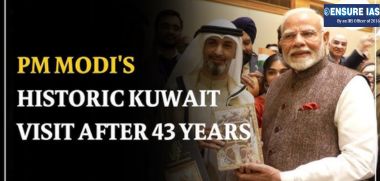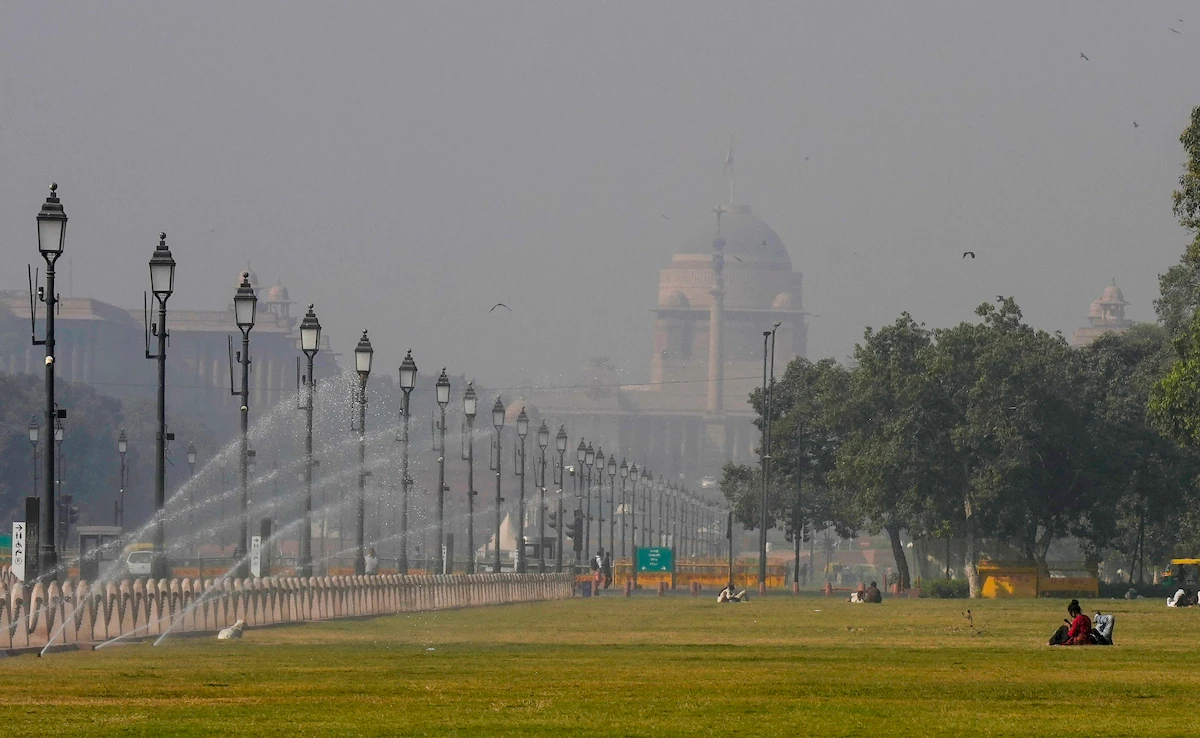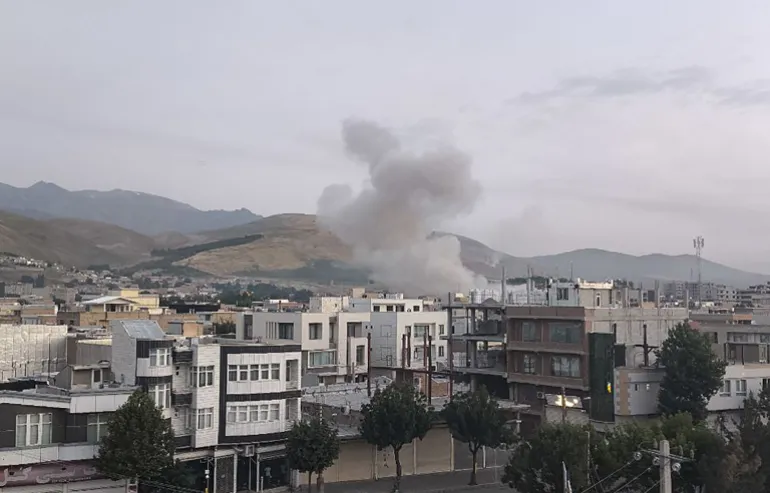- Courses
- GS Full Course 1 Year
- GS Full Course 2 Year
- GS Full Course 3 Year
- GS Full Course Till Selection
- Answer Alpha: Mains 2025 Mentorship
- MEP (Mains Enrichment Programme) Data, Facts
- Essay Target – 150+ Marks
- Online Program
- GS Recorded Course
- Polity
- Geography
- Economy
- Ancient, Medieval and Art & Culture AMAC
- Modern India, Post Independence & World History
- Environment
- Governance
- Science & Technology
- International Relations and Internal Security
- Disaster Management
- Ethics
- Current Affairs
- Indian Society and Social Issue
- NCERT- Science and Technology
- NCERT - Geography
- NCERT - Ancient History
- NCERT- World History
- CSAT
- 5 LAYERED ARJUNA Mentorship
- Public Administration Optional
- ABOUT US
- OUR TOPPERS
- TEST SERIES
- FREE STUDY MATERIAL
- VIDEOS
- CONTACT US
First PM Modi's Visit To Kuwait In 43 Years
First PM Modi's Visit To Kuwait In 43 Years
23-12-2024

- Dates of Visit: December 21-22, 2024
- Prime Minister of India: Shri Narendra Modi
- Host: His Highness the Amir of Kuwait, Sheikh Meshal Al-Ahmad Al-Jaber Al-Sabah
- Purpose: To deepen bilateral relations, establish a Strategic Partnership, and strengthen cooperation in various sectors such as trade, defense, energy, culture, education, and people-to-people exchanges.
Key Highlights of the Visit:
1. Warm Reception and High-Level Engagement:
- Prime Minister Narendra Modi was officially welcomed by His Highness the Amir of Kuwait, Sheikh Meshal Al-Ahmad Al-Jaber Al-Sabah, and Crown Prince Sheikh Sabah Al-Khaled Al-Sabah at the Bayan Palace on December 22, 2024.
- This formal reception highlighted the importance of the visit and the strong relationship between the two countries.
- During the meeting, PM Modi expressed his gratitude for receiving Kuwait’s highest civilian award, The Order of Mubarak Al Kabeer, a symbol of the deep and friendly ties between the nations.
- It will be the first visit to the Gulf nation by an Indian Prime Minister in 43 years.
2. Strategic Partnership:
- A major outcome of the visit was the establishment of a Strategic Partnership between India and Kuwait. Both leaders agreed that the partnership would focus on common interests and mutual benefits for both nations.
- This partnership aims to further expand cooperation in several areas, including political, trade, defense, security, energy, culture, education, and technology. This elevates the relationship from a traditional friendship to a more structured and multifaceted cooperation.
3. Bilateral Cooperation and Institutional Mechanisms:
- Joint Commission on Cooperation (JCC): Both sides agreed to establish the JCC to periodically review and monitor the overall bilateral relationship. The JCC will be co-chaired by the Foreign Ministers of both countries.
- Joint Working Groups (JWGs): Several new JWGs were created to address specific areas like trade, investment, education, technology, security, counter-terrorism, agriculture, and culture. These will further expand and enhance the bilateral cooperation across various sectors, complementing existing JWGs on health, manpower, and hydrocarbons.
4. Trade, Investment, and Economic Relations:
-
Trade Relations:
- Trade between India and Kuwait has been a strong pillar of their relationship.
- Both sides agreed to work on expanding and diversifying trade, with an emphasis on exchange of business delegations and promoting institutional linkages to facilitate smoother trade relations.
-
Investment Cooperation:
- Recognizing India’s status as one of the world’s fastest-growing economies, Kuwait expressed a keen interest in exploring investment opportunities in India, particularly in technology, tourism, healthcare, food security, and logistics.
- Both countries also discussed ways to improve the environment for foreign direct investment (FDI) and foreign institutional investment (FII), especially in infrastructure.
- The governments agreed to fast-track negotiations on a Bilateral Investment Treaty (BIT) to create a secure and predictable framework for investments.
-
Energy Cooperation:
- India and Kuwait have robust energy trade relations, particularly in oil and gas.
- Both sides agreed to take this cooperation to the next level by transitioning from a traditional buyer-seller relationship to a more comprehensive strategic energy partnership.
- This would include collaboration in the upstream and downstream sectors, such as oil exploration, refining, petrochemicals, and new renewable energy sources.
- Kuwait also expressed an interest in participating in India’s Strategic Petroleum Reserve Programme, ensuring energy security for both nations.
5. Defense and Security Cooperation:
- A significant highlight of the visit was the signing of a Memorandum of Understanding (MoU) on Defense Cooperation. This agreement outlines cooperation in areas such as:
- Joint military exercises
- Training of defense personnel
- Coastal defense and maritime security
- Joint development and production of defense equipment.
- Both countries also discussed the importance of enhancing counter-terrorism cooperation, including intelligence sharing, capacity building, and tackling terrorist financing and safe havens.
- Additionally, they pledged to collaborate in cybersecurity and to work on preventing the misuse of cyberspace for terrorism and radicalization.
6. Health and Pharmaceutical Cooperation:
- Both sides recognized health cooperation as a key area for future collaboration, especially after their successful joint efforts during the COVID-19 pandemic.
- The two countries discussed the establishment of Indian pharmaceutical manufacturing plants in Kuwait and agreed to enhance cooperation in medical product regulation.
- This could lead to more efficient supply chains and mutual benefits in healthcare.
7. Cultural, Educational, and People-to-People Ties:
- Cultural Exchange Programme (CEP): The Cultural Exchange Programme between India and Kuwait for the period 2025-2029 was renewed, encouraging exchanges in arts, music, literature, and cultural festivals.
- Sports Cooperation: An Executive Programme on Sports Cooperation (2025-2028) was signed, which will focus on organizing sports exchanges, workshops, and seminars between both nations.
- Education and Technology: Both countries discussed expanding cooperation in higher education, including institutional exchanges between universities and the promotion of educational technology. The Special Course for diplomats from Kuwait at the Sushma Swaraj Institute of Foreign Service in New Delhi was also agreed upon.
- People-to-People Ties: The Indian community in Kuwait plays a vital role in the country’s development. The Kuwaiti leadership expressed their deep appreciation for the contribution of the Indian diaspora, and PM Modi thanked the leadership for ensuring their well-being.
8. Food Security and Agriculture Cooperation:
- Food Security: Kuwait expressed interest in ensuring its food security by exploring opportunities for collaboration with India. This could include investment in food parks and agricultural initiatives in India, leveraging India’s agricultural expertise.
- Agricultural Cooperation was also discussed, with both sides agreeing to explore further avenues for mutual benefit in this sector.
9. Regional and Global Cooperation:
- India-GCC Relations: Both countries highlighted the growing relationship between India and the Gulf Cooperation Council (GCC).
- GCC is an influential grouping comprising the United Arab Emirates, Bahrain, Saudi Arabia, Oman, Qatar and Kuwait. The total volume of India's trade with GCC countries stood at USD 184.46 billion in the financial year 2022-23. Kuwait is the current chair of the GCC.
- India welcomed Kuwait’s leadership role in the GCC, and the two sides expressed their commitment to deepening India-GCC cooperation in sectors such as health, trade, security, energy, and agriculture.
- They also emphasized the need for the early conclusion of the India-GCC Free Trade Agreement to further boost economic ties.
- UN Reforms: Both leaders discussed the reform of the United Nations, particularly the expansion of the Security Council to make it more representative and effective in addressing global challenges.
10. Key Documents Signed/Exchanged:
- MoU on Defense Cooperation: To enhance defense collaboration.
- Cultural Exchange Programme (2025-2029): For fostering people-to-people exchanges.
- Executive Programme on Sports Cooperation (2025-2028): To strengthen bilateral ties in sports.
- Kuwait’s Membership in the International Solar Alliance (ISA): Reflecting growing cooperation in renewable energy.
11. Future Engagements and Invitations:
- PM Modi invited the Kuwaiti leadership, including the Amir, Crown Prince, and Prime Minister, to visit India, continuing the positive momentum of the bilateral relationship.
Conclusion:
The official visit of Prime Minister Modi to Kuwait in December 2024 was a milestone in strengthening India-Kuwait relations. Both nations elevated their ties to a strategic partnership, committing to enhanced cooperation in a range of sectors including trade, defense, energy, health, culture, education, and technology. The agreements signed during the visit are a testament to the broadening scope of this partnership, which will bring substantial benefits to both countries and contribute to regional stability and global peace.
| Also Read | |
| UPSC Prelims Result | UPSC Daily Current Affairs |
| UPSC Monthly Mgazine | Previous Year Interview Questions |
| Free MCQs for UPSC Prelims | UPSC Test Series |
| ENSURE IAS NOTES | Our Booklist |




